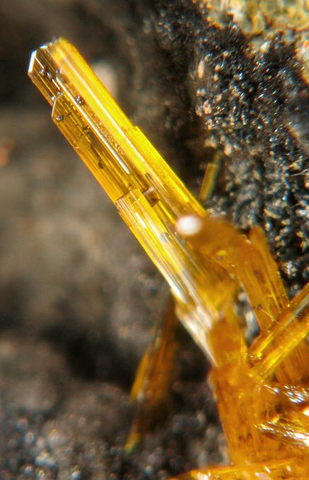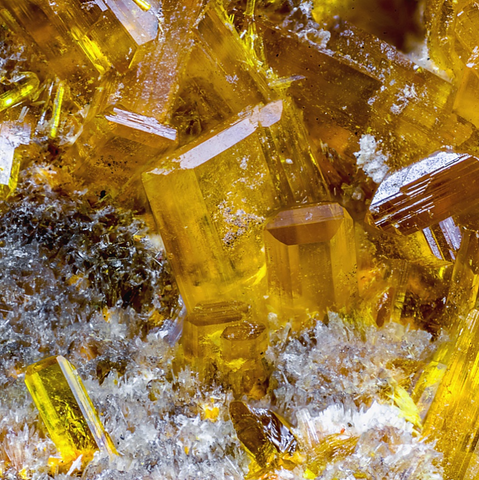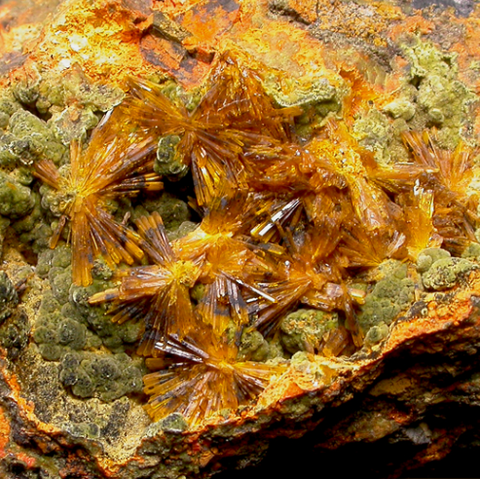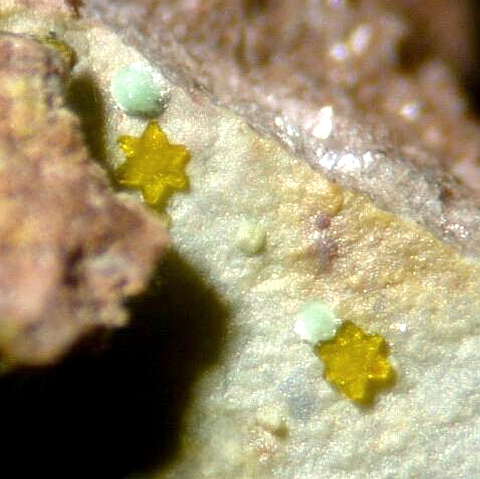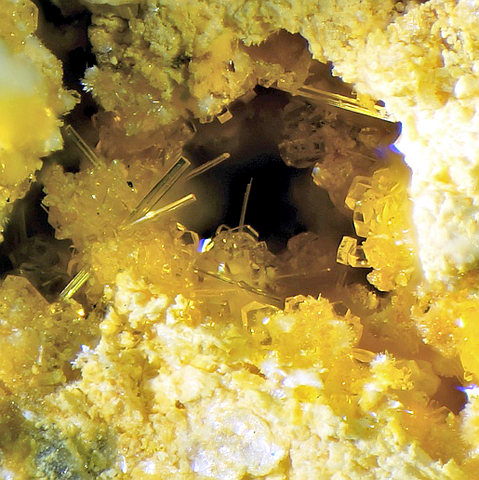BECQUERELITE
Class : Oxides and hydroxides
Subclass : Uranyl hydroxides
Crystal System : Orthorhombic
Chemistry : Ca(UO2)6O4(OH)6 8H2O
Rarity : Rare
Becquerelite is a mineral from the oxidation zone of uranium deposits, more rarely uranium pegmatites. It associates with other secondary uranium minerals (studtite, schoepite, fourmarierite) which, like it, results from the meteoric alteration of uraninite. It was described in 1922 on samples from Shinkolobwe (Democratic Republic of Congo), it was named in honor of the French physicist Antoine-Henri Becquerel who discovered radioactivity in 1896. It is a rare mineral which present in small masses or crystals sometimes remarkable, transparent to translucent, of amber yellow color, which can reach 25 mm. These occur as prisms and needles, frequently streaked on {010}, or as tabular individuals. It is a very accessory ore of uranium.
Main photo : Becquerelite from Shinkolobwe, Haut-Katanga, Democratic Republic of Congo © Jean-Marc Johannet
Becquerelite in the World
Twinning and special crystallizations
Twins are known on {110}, polysynthetic and producing pseudohexagonal aggregates or 6-pointed stars.
Fakes and treatments
No fake or treatment identified for this mineral species.
Hardness : 2.5
Density : 5.1 to 5.2
Fracture : Irregular
Trace : Yellow
TP : Translucent to transparent
RI : 1.725 to 1.830
Birefringence : 0.100
Optical character : Biaxial -
Pleochroism : Visible
Fluorescence : Brown-yellow
Solubility : -
Magnetism : None
Radioactivity : Very strong

